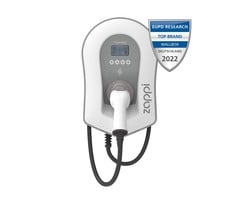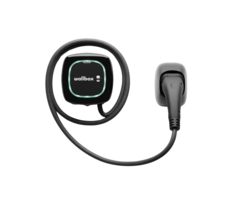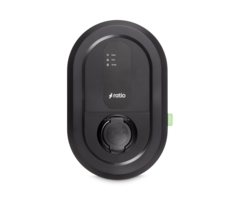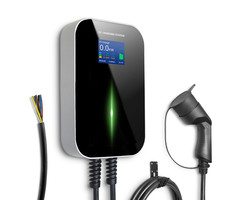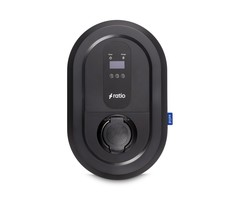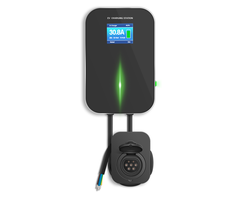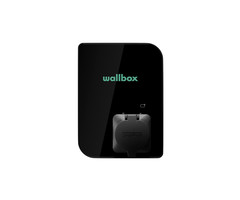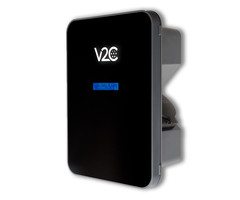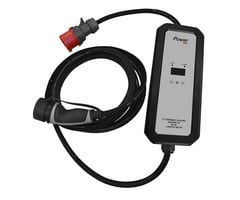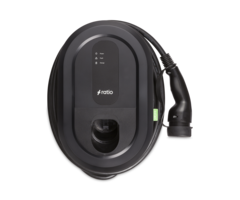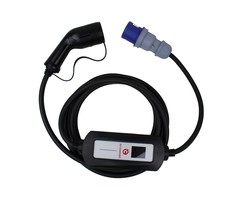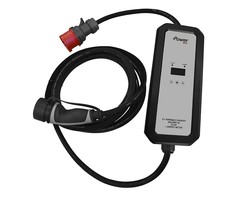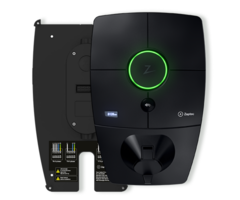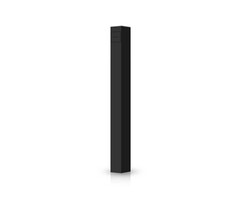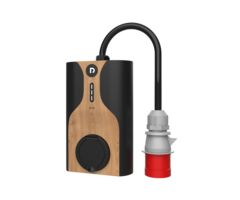EV home charger
Do you have a hybrid or electric car at home? Then having your own EV Charger on your driveway or your own site is certainly a good idea. If you have a EV Charger at home, you always drive with a full battery and therefore with a pleasant feeling of home. And you don't have to constantly search for a public EV Charger. Also, the costs for charging at home are often lower than at a public EV Charger. The EV Chargers for at home are therefore on the rise.
How much does a EV Charger at home cost?
| Cost items | Price |
| Purchase price | € 299 - € 1149 |
| Installation | From € 399 |
| Costs of a separate charging cable | € 160 - € 340 |
| Electricity costs | Depending on the kWh price you pay with your energy supplier, the consumption of your car and the number of kilometers you drive per year. |
| Possible costs for increasing the connection of the fuse box | Depending on your network administrator, call-out costs of the electrician and any excavation work. The one-off costs are often around € 800,-. Every year, an increase in weighting also entails additional costs. |
The costs of a EV Charger at home depends on several factors. Think of:
- the purchase price
- the costs for installation
- the consumption of your car
- the kWh price you pay for electricity
- number of kilometres you drive per year
- costs of charging cable
We briefly explain a number of factors below.
Purchase price EV Charger at home: Wallbox Discounter
The cheapest EV Charger at Wallbox Discounter costs only €499, very advantageous compared to other providers. We buy our range directly from the manufacturer in China. This allows us to offer our EV Chargers a lot cheaper. Our lower prices do not mean that you compromise on quality: we have many satisfied customers who also confirm this in their reviews on Kiyoh.
The difference in price between EV Chargers from Europe and our EV Chargers is more in other things than quality. For example, our products have a slightly less luxurious packaging, only a manual in English and a more basic design. However, all our EV Chargers are regularly tested, ECE and TÜV approved and delivered as standard with a 1-year warranty. Should your EV Charger not cost too much at home, but do you want a EV Charger of good quality? Then be sure to check out our range.
Electricity costs for charging at home
Depending on your energy contract, charging at home is often cheaper than charging at a public wallbox, especially if you have solar panels. Due to the rising prices for electricity - the costs are now around € 0,40 per kWh for electricity instead of € 0,20 - this can vary.
Calculation example charging at home
Suppose you have a fixed energy contract and pay € 0,26 per 1 kWh. A charge of 20.7 kWh - the consumption of an average electric middle class car per 100 kilometers - will cost you € 5,38. And when you drive 15,000 kilometers annually and always charge at home, you pay about € 807 per year (€ 0,054 per km).
Source: ANWB
Tip for overview costs: At certain EV Chargers you can measure and track the consumption of the electricity. You can also have an extra meter connected in the fuse box. This way you can see exactly what a full battery costs you. For example, our digital kWh meter or HomeWizard P1 Meter are ideal for keeping track on your costs.
Installation costs for EV Charger at home
Having a EV Charger installed at home usually costs between € 389 and € 800, if you engage an installer - we certainly recommend installation by an installer and work together with experienced installers. It is not possible to put one price on the installation for a EV Charger at home, in advance, because every situation is different. Any excavation work, possible adjustments to your fuse box and the location of the EV Charger all affect the installation costs of your charging point. Look at our overview of installation costs.
Costs of a charging cable
To charge your car, you need a cable that connects your EV Charger and the car: a so-called charging cable or power cable. The costs for a charging cable are between € 160 and € 340 depend on the type of cable you need. When purchasing a cable, you should pay attention to a number of points:
- Type 1 of 2
- Ability
- Charging cable length
Take a look at our charging cables and read more about the type of charging cable you need.
Costs of increasing connection
Do you want a EV Charger for your home and do you have a 1-phase connection? Then you may have to weigh down the group cupboard in your fuse box, to prevent the stops from breaking through. Not every EV Charger is suitable for every fuse box. For example, if you connect an 11 kW EV Charger phase 3 - 16 A to a phase 1 35A connection, you can only charge a maximum of 3.7 kW. This is not fast enough for many electric cars. In such a case, you have to have the connection made more difficult by the grid operator and there are costs involved. What exactly you pay for the reinforcement of your connection depends on things like the type of connection you have, your network operator (* Dutch only), call-out costs of the electrician, any excavation work and more. An exact price cannot be given in advance.
Different options for charging at home
There are different types of EV Chargers. We have listed the different options for your EV Charger at home:
Mobile EV charger
Our Mobile EV charger is the easiest way to charge your hybrid or electric car with a EV Charger at home. You plug it into the normal 230V socket. This means that you often have to put the cable through your mailbox or over the sidewalk to reach your car. The mobile home charger is widely used in cities, on the road or with friends and family who have not yet installed a EV Charger at home. The disadvantage of this way of charging is the low speed, which means that it takes a long time before your car has a full battery again. The mobile charger is very suitable for a hybrid car with a small battery capacity.
| Advantages |
|
| Disadvantages |
|
Charging station
The electric charging station is the most comfortable way to create a charging point for your electric or hybrid car. From the fuse box, a cable is pulled to your parking space where the charging station is installed. Most charging stations are standard equipped with a fixed cable including type 1 or type 2 plug, so that you only have to plug in when you return home.
| Advantages |
|
| Disadvantages |
|
Wallbox
The EV Charger is actually the same as an charging station. The only big difference is that it is attached to the wall and the charging station is mounted independently on a pole. All our models are suitable for mounting on a wall or on a pole.
| Advantages |
|
| Disadvantages |
|
Frequently Asked Questions
What is the most suitable EV Charger for at home?
This depends on several factors. Consider, for example, the type of car you have, the charging capacity of your car, your connection (1-phase or 3-phase), etc. Before you buy a EV Charger, it is important to check these factors in advance. After all, you don't want the stops at home when you use your EV Charger, or to get stressed because the charging speed of your EV Charger is too low. If you want to know what the right EV Charger is for you, check: the best EV Charger for at home
What is the best place for a EV Charger at home?
You can place a EV Charger anywhere on your own driveway or site. For the location of the EV Charger, take into account the place where the plug goes into your car, this in connection with the charging cable. The connection can be in the nose of your car, but also at the back, for example. If you have a EV Charger, you attach it to the wall where you can connect to your fuse box.
Can a EV Charger at home be connected to solar panels?
That depends on the type of EV Charger you choose. Not every type of EV Charger can be connected to solar panels. A solar panel supplies direct current instead of normal alternating current that comes from the socket. That is why you cannot connect every EV Charger at home directly to your solar panels. Take a look our EV Chargers that connect to solar panels to make electric charging even more sustainable and cheaper.
What is load balancing?
This is a technique in a EV Charger that prevents overloading, so that at home the power can not suddenly fail when you are charging your electric car and at the same time also use many other devices.
Are there subsidies for a EV Charger at home?
There are currently no national subsidies for the private purchase of a EV Charger at home. However, Associations of Owners and housing corporations can receive a subsidy for the purchase of a EV Charger in an apartment building (* Dutch only).



